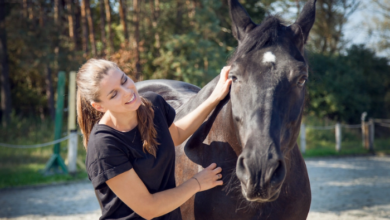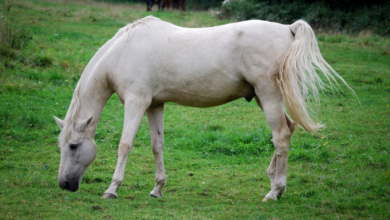
Horses have captured the human imagination for millennia, symbolizing freedom, power, and grace. Their journey from wild, untamed creatures to domesticated companions and work partners is a testament to their adaptability and the deep bond they share with humanity. This majestic journey of horses through history reveals a fascinating evolution and highlights their pivotal role in shaping civilizations. Discover the thrill of horse racing in France with FranceChevalTurf. Get expert tips, race analysis, and place your bets for an unforgettable experience. Join us today!
The Evolutionary Path of Horses
The evolutionary lineage of horses dates back approximately 55 million years. The earliest known ancestor of the modern horse, Eohippus, or “dawn horse,” was a small, dog-sized creature that roamed the forests of North America. Over millions of years, evolutionary pressures led to significant changes in their size, structure, and habitat.
By the time of the Mesohippus, horses had developed longer legs and a more specialized diet, adapting to the spread of grasslands. The Merychippus marked a critical point in horse evolution around 17 million years ago, with the development of high-crowned teeth suitable for grazing and the beginnings of herd behavior. The genus Equus, which includes modern horses, zebras, and donkeys, appeared around 4 million years ago, characterized by a single toe, or hoof, on each foot, optimized for running across open plains.
Domestication and Early Human Interaction
The domestication of horses is a landmark event in human history, believed to have occurred around 4000-3500 BCE in the steppes of Central Asia. The Botai culture of Kazakhstan provides some of the earliest evidence of horse domestication, including horse milk residues in pottery and signs of horse riding.
Domesticated horses revolutionized human society. They enabled faster travel, transformed warfare with the advent of cavalry, and enhanced agricultural productivity. As humans and horses forged a symbiotic relationship, the cultural and economic landscapes of ancient civilizations were profoundly altered.
Horses in Ancient Civilizations
Horses quickly became integral to the rise of ancient civilizations. In Mesopotamia, horses were used in chariot warfare, which was depicted in art and documented in texts. The Egyptians, recognizing the horse’s value, integrated them into their military and ceremonial practices around 1600 BCE, following the Hyksos invasion.
In the vast expanses of the Eurasian Steppe, the Scythians, a nomadic people, developed a culture centered around horsemanship. Their mastery of mounted archery made them formidable warriors and influential traders. Similarly, in China, the Han Dynasty utilized horses to expand their empire and establish the Silk Road, facilitating cultural and economic exchange across continents.
The Medieval and Renaissance Periods
During the medieval period, the role of horses continued to evolve. Knights on horseback became emblematic of the feudal system, with horses bred specifically for warfare, such as the powerful destriers. The invention of the stirrup further enhanced cavalry effectiveness, changing the dynamics of combat.
The Renaissance saw a resurgence in the appreciation of horses, not only for their utility but also for their beauty and grace. The development of classical dressage and the establishment of riding schools, such as the Spanish Riding School in Vienna, celebrated the artistry of horsemanship.
The Modern Era: Horses in Work, Sport, and Culture
With the advent of the Industrial Revolution, the role of horses shifted from transportation and agriculture to leisure and sport. The development of mechanized vehicles reduced the need for horse-drawn transport, but horses found new prominence in competitive disciplines such as racing, show jumping, and dressage.
Today, horses continue to captivate people worldwide. Equestrian sports are showcased in the Olympics, and horse racing remains a popular and lucrative industry. Additionally, horses play therapeutic roles, helping individuals with physical, emotional, and cognitive challenges through equine-assisted therapy programs.
The Enduring Legacy of Horses
The enduring legacy of horses in human history is a testament to their remarkable adaptability and the deep bond shared with humans. From their evolutionary origins to their diverse roles in ancient and modern societies, horses have been steadfast companions, workers, and symbols of human achievement and aspiration.
As we continue to celebrate and honor the majestic journey of horses, it is crucial to ensure their well-being and conservation. Understanding their historical significance enriches our appreciation of these magnificent animals and underscores the importance of preserving their legacy for future generations.




